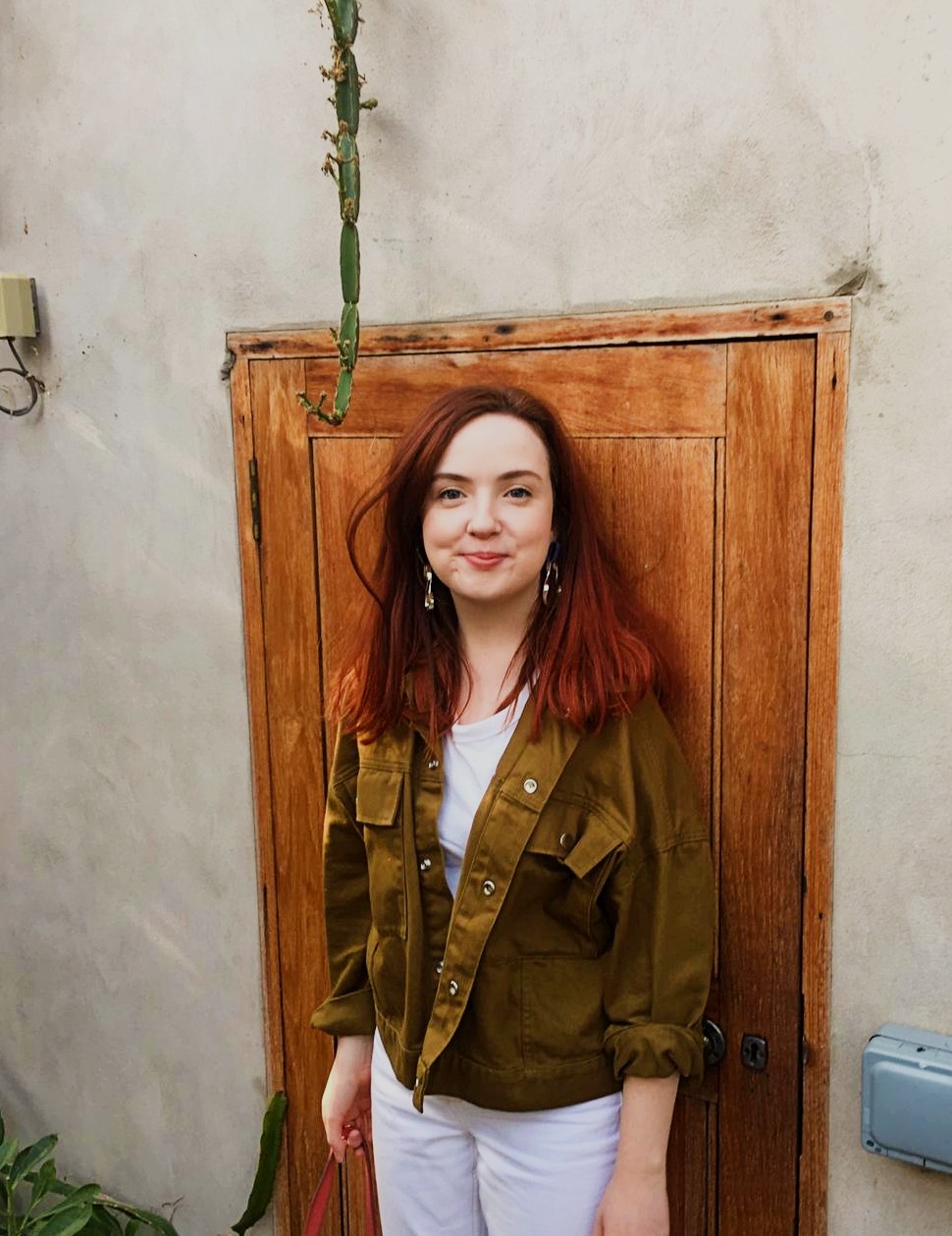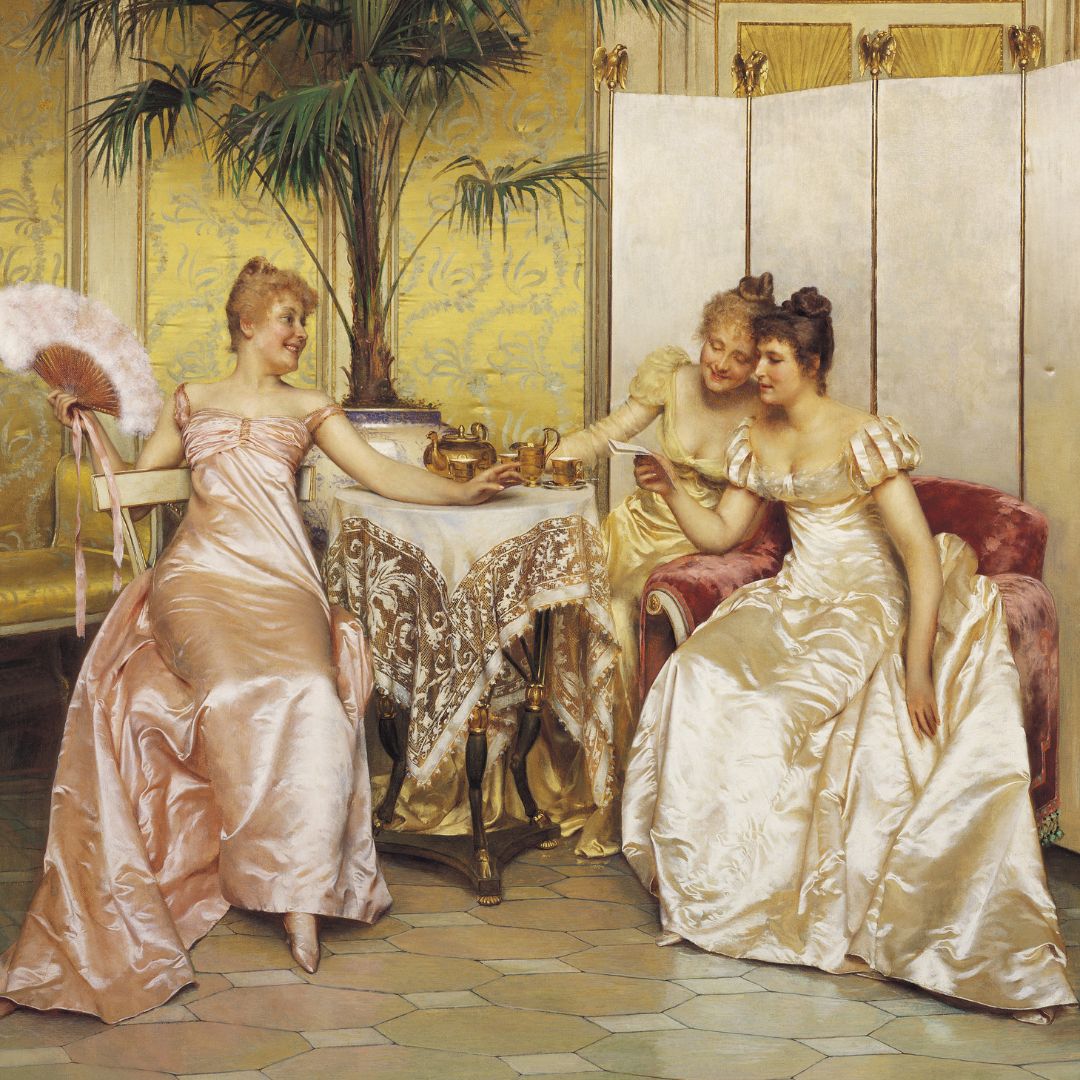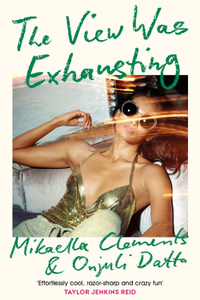The View Was Exhausting co-authors Mikaella Clements and Onjuli Datta on the romance of friendship
'When we’re writing, we try to imbue our friendships with just as much emotion and care and tension as a romantic relationship.' Partners in life and writing Mikaella Clements and Onjuli Datta talk love and friendship in their dazzling debut novel, The View Was Exhausting.


'When we’re writing, we try to imbue our friendships with just as much emotion and care and tension as a romantic relationship.' Partners in life and writing Mikaella Clements and Onjuli Datta talk love and friendship in their dazzling debut novel, The View Was Exhausting.
Words by Mikaella Clements and Onjuli Datta
Last year, after three months of strict lockdown in our Berlin apartment, we saw our best friends again. Of course, we’d seen them during the first horrible wave of the pandemic: glitching over our crappy connections in the world’s brief and obsessive flirtation with Houseparty; pretending a Zoom pub quiz was just as good as the real thing; sending bored selfies from our couch to theirs. But when the lockdown eased enough for us to meet in a park on our separate picnic blankets, their faces seemed newly alive to us, their idle gestures freshly fascinating. We were so excited to see them, and so out of habit with being around other people, that we were basically spitting with every thrilled exclamation, and the only thing that mitigated our embarrassment was that they were just as excited to see us.
There was something weirdly moving about being reunited with our friends. It was the same little shock of tender affection as when another friend brought us a sweet card and candle after our cat died, or when a friend and her boyfriend baked the childhood birthday cake of Mikaella’s dreams from a cult 1980s Australian recipe book.
'There is a little kernel of romance in each friendship'
Because good friends love one another, there is a little kernel of romance in each friendship, that same excitement and mystery that makes our hearts beat faster on a date or anniversary. When a friend reaches out, we often have the same fluttery delight as a crush – without the sickening anxiety about whether they like you back.
In romcoms, the heroine’s best friend is a staple of the genre, so much so that Judy Greer wrote a whole memoir about playing the role. The popular romcom choice is to have them be the opposite of your main character – if your heroine is straight-laced and uptight (the Katherine Heigl type), give her a laidback bestie with a cocktail straw between her teeth and her eyes on a boy; if your heroine is wacky and wild, give her a best friend chasing desperately after her and shouting ‘at least put some underwear on!’.
The View Was Exhausting by Mikaella Clements and Onjuli Datta (Hardback) – £18.99 | Waterstones
Either way, a really good fictional friendship – whether in a classic work of literary genius or a horror B-movie – should feel as lived in and fleshed out as you and your own favourite pal. And a romcom is particularly poised to do this, because love and care are at the heart of the genre, ready to be expressed not just between our main couple but between our heroine and her best friend too. A good romcom will show us just why our heroine and her best friend are so drawn towards one another, the invisible strings and intricate history that bind them. We might not see all of this history, but the sense of it should be there, thrumming below the surface.
Marie Claire Newsletter
Celebrity news, beauty, fashion advice, and fascinating features, delivered straight to your inbox!
'We wanted them to love each other and drive each other crazy'
As a writer, you want to almost imply that it’s just luck of the draw that your heroine’s best friend isn’t, in fact, your heroine. They should be just as real a person, just as developed a character; we should give our fictional friends the same respect and interest we give our real-life friends. A stand-in best friend who is there to cheer the hero on and explain plot to the audience will do the trick, but they will rarely move anyone. When we wrote The View Was Exhausting, we wanted our heroine, Win, to have a friend who had her own desires and ambitions, which were sometimes contradictory to Win’s. We created Shift, our addition to that great romcom best friend tradition, not just to support Win, but to challenge her. We wanted them to love each other and drive each other crazy.
When we’re writing, we try to imbue our friendships with just as much emotion and care and tension as a romantic relationship. The focus of the novel might not be the friendship, of course, but that kernel of romance in the heart of the friendship will make the pages where it is the focus come alive. In the same way, most romances do well with a kernel of friendship at their heart: an assurance that our main couple will want to talk to one another, spend time with one another, be interested in one another even if they’re not in the grips of passion or infatuation.
Last year, we got married to each other (for the second time – it’s a long story). It was a long, lovely, stressful day, as weddings tend to be, a blur of family and friends and gripping each other’s hands white-knuckled. But one of the clearest moments that springs from it is when someone spilled curry on Mikaella’s white silk shirt, leaving both of us staring stricken at one another until Onjuli blurted out, ‘I’ll go get Sophie!’. Our best mate (and maid of honour) descended upon us like a dream, deftly scrubbing out the stain with nothing but hand soap and a paper towel, all of us grinning and knowing that this was another moment in the mythology of our friendship, right here in the making.
Kate McCusker is a freelance writer at Marie Claire UK, having joined the team in 2019. She studied fashion journalism at Central Saint Martins, and her byline has also appeared in Dezeen, British Vogue, The Times and woman&home. In no particular order, her big loves are: design, good fiction, bad reality shows and the risible interiors of celebrity houses.
-
 I was told I was too girly to be gay — When will society stop judging women on how we look?
I was told I was too girly to be gay — When will society stop judging women on how we look?Why femme invisibility is a feminist issue
By Roxy Bourdillon
-
 Walking workouts are the hottest form of exercise RN - 5 best walking workouts for beginners to boost fitness and mood
Walking workouts are the hottest form of exercise RN - 5 best walking workouts for beginners to boost fitness and moodYour ultimate guide.
By Katie Sims
-
 I have no time to be faffing with brushes, but a make-up sponge is an essential in my routine—here are the 6 best
I have no time to be faffing with brushes, but a make-up sponge is an essential in my routine—here are the 6 bestEssential for smooth, seamless skin
By Mica Ricketts
